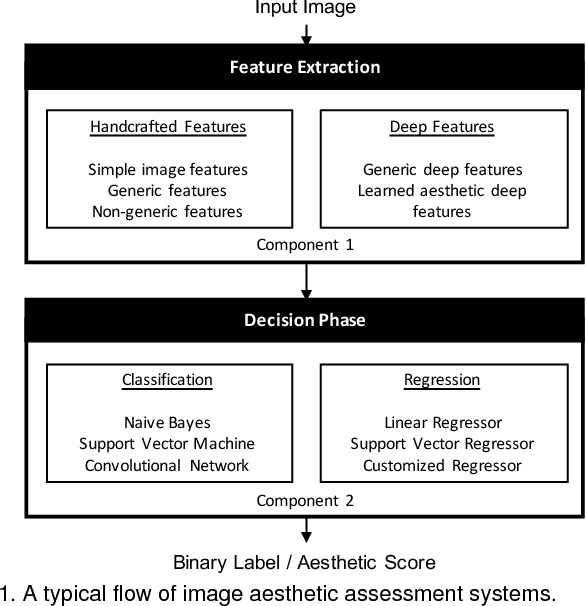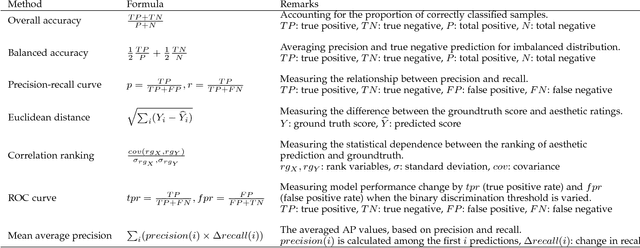Image Aesthetic Assessment: An Experimental Survey
Paper and Code
Apr 20, 2017



This survey aims at reviewing recent computer vision techniques used in the assessment of image aesthetic quality. Image aesthetic assessment aims at computationally distinguishing high-quality photos from low-quality ones based on photographic rules, typically in the form of binary classification or quality scoring. A variety of approaches has been proposed in the literature trying to solve this challenging problem. In this survey, we present a systematic listing of the reviewed approaches based on visual feature types (hand-crafted features and deep features) and evaluation criteria (dataset characteristics and evaluation metrics). Main contributions and novelties of the reviewed approaches are highlighted and discussed. In addition, following the emergence of deep learning techniques, we systematically evaluate recent deep learning settings that are useful for developing a robust deep model for aesthetic scoring. Experiments are conducted using simple yet solid baselines that are competitive with the current state-of-the-arts. Moreover, we discuss the possibility of manipulating the aesthetics of images through computational approaches. We hope that our survey could serve as a comprehensive reference source for future research on the study of image aesthetic assessment.
 Add to Chrome
Add to Chrome Add to Firefox
Add to Firefox Add to Edge
Add to Edge